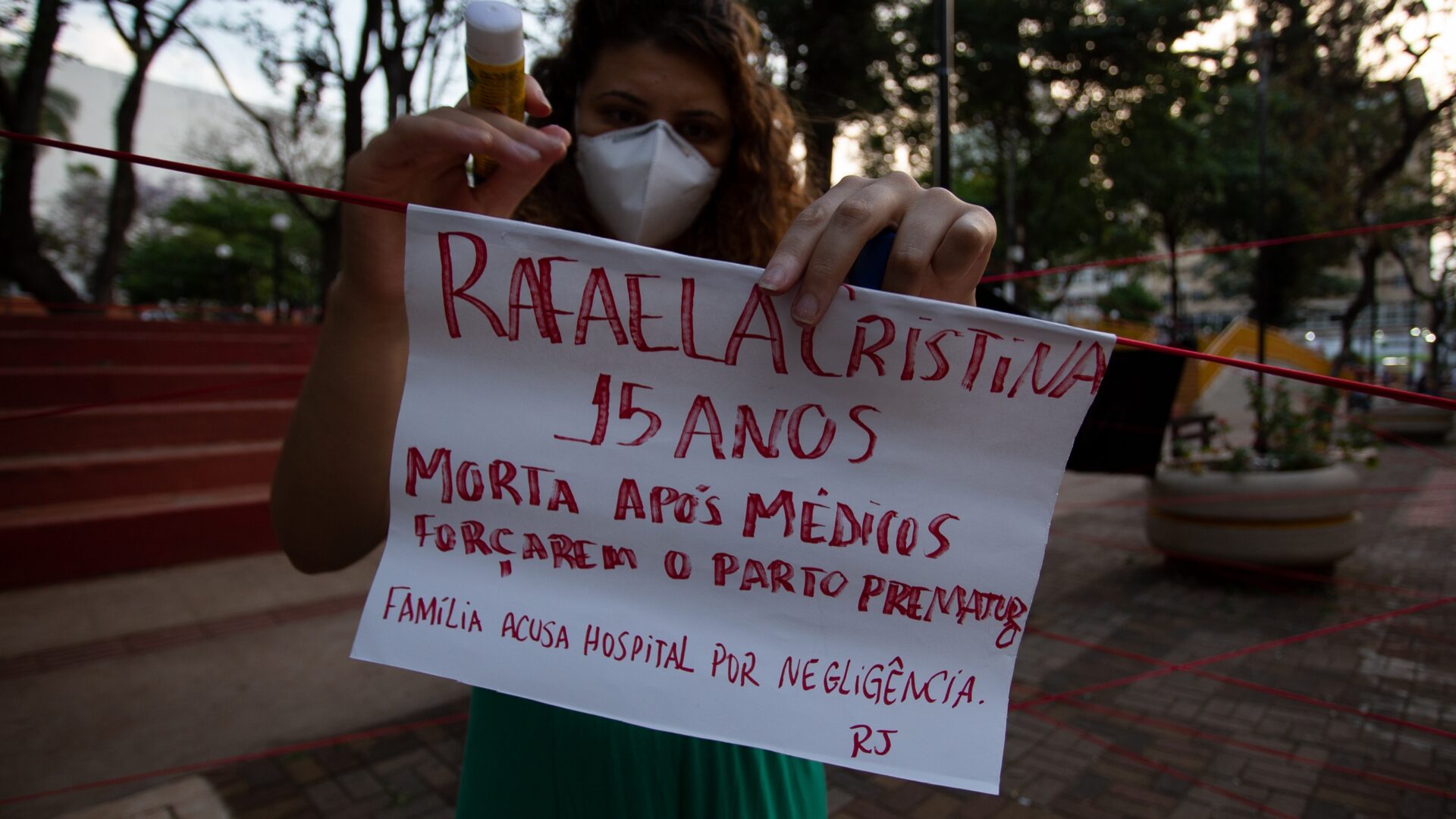It is a hot-button issue on which people tend to take an extreme position. That and the fact that it is illegal in Brazil could explain why abortion remained taboo for such a long time and has only recently begun to be discussed more openly.
Despite being prohibited by law and frequently subject to moral and religious condemnation, the fact is that abortion occurs in Brazil, it is common, and it is almost always carried out unsafely, without the help of health professionals or adequate means, which puts women’s lives at risk.
The most recent and reliable estimate, obtained using methods to protect the respondents’ identities, suggests that around 500,000 abortions are performed in Brazil every year. Almost half of the cases (43 percent) led to complications that required the woman to be admitted to a hospital or emergency room to complete the procedure.
“Abortion is a public health issue that affects regular Brazilian women, in particular the youngest and most vulnerable, such as Black women,” says Debora Diniz, an anthropologist from the University of Brasília and one of the coordinators of the National Abortion Survey (PNA).
The survey, carried out on average every five years and currently in its third iteration, attempts to provide an idea of the scale of the problem in Brazil. In the most recent PNA, interviewers visited 125 Brazilian municipalities in November 2021 to collect socio-demographic information from 2,000 women aged between 18 and 39 years old.
Each participant was also given a questionnaire containing seven questions about abortion, which they completed and deposited into a sealed box to maintain confidentiality. The women, representative of Brazilian women of childbearing age who can read and write and live in cities, were randomly selected to take part in the survey.
The results, accepted for publication in the journal Ciência & Saúde Coletiva, show that abortion is a common occurrence among Brazilian women: one in seven women aged 40 has had at least one abortion.
“Any problem that affects such a large proportion of the population is a huge health issue for a country,” emphasizes sociologist Marcelo Medeiros, a visiting professor at Columbia University and co-author of the study.
This proportion, however, appears to be decreasing. Approximately 20 percent of women had had an abortion in the 2010 and 2016 surveys, but this dropped to 15 percent in 2021. Although the respondents were aged between 18 and 39, the researchers used a statistical tool to project the abortion rate at age 40 and correct any distortions in the data caused by the aging of the population and the fact that abortion is a cumulative phenomenon.
In 2021, for the first time, the survey evaluated the age at which respondents had their first abortion and found that the problem starts early in the...


 Search
Search






































